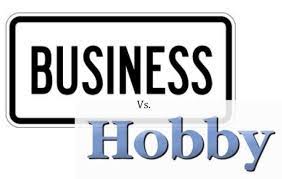Many Americans today have a sideline business, as the current structure of our economy has made it easier to do so. A basic rule for income earned from a sideline business is that it must be reported no matter how much it is. If the business has the primary purpose of making a profit and is a continuous activity, then expenses that are incurred can be offset against income that is earned. If it is determined that the sideline activity is a hobby those expenses cannot be deducted for income tax purposes.
The IRS has a set of guidelines that are used in determining whether an activity is a legitimate business or a hobby:
- Does the time and effort put into the activity indicate an intention to make a profit?
- Does the taxpayer depend on income from the activity?
- If there are losses, are they due to circumstances beyond the taxpayer’s control or did they occur in the start-up phase of the business?
- Has the taxpayer changed methods of operation to improve profitability?
- Does the taxpayer have the knowledge needed to carry on the activity as a successful business?
- Does the activity make a profit in some years?
- Can the taxpayer expect to make a profit in the future?
Intending to make a profit and to be considered a legitimate business also includes good practices such as:
- Setting up a separate business checking account
- Keeping business and personal expenses separate
- Maintaining good records
- Registering the business with a state as an LLC or partnership.
- Having regular business hours, maintaining a business website.
The IRS normally presumes that an activity is a business if it earns a profit during three of the last five tax years. However the factors that are outlined above must be taken into consideration as well.




